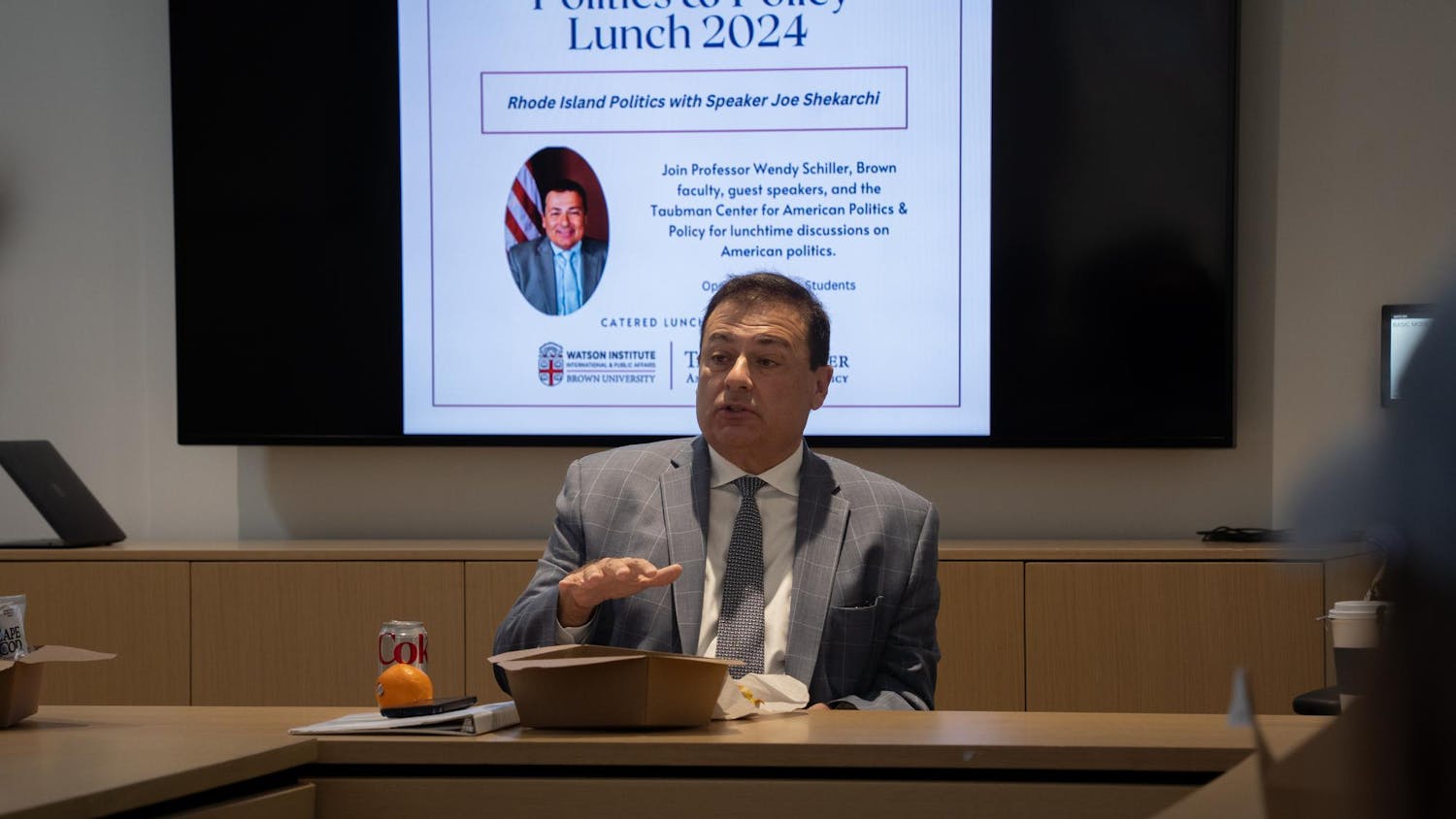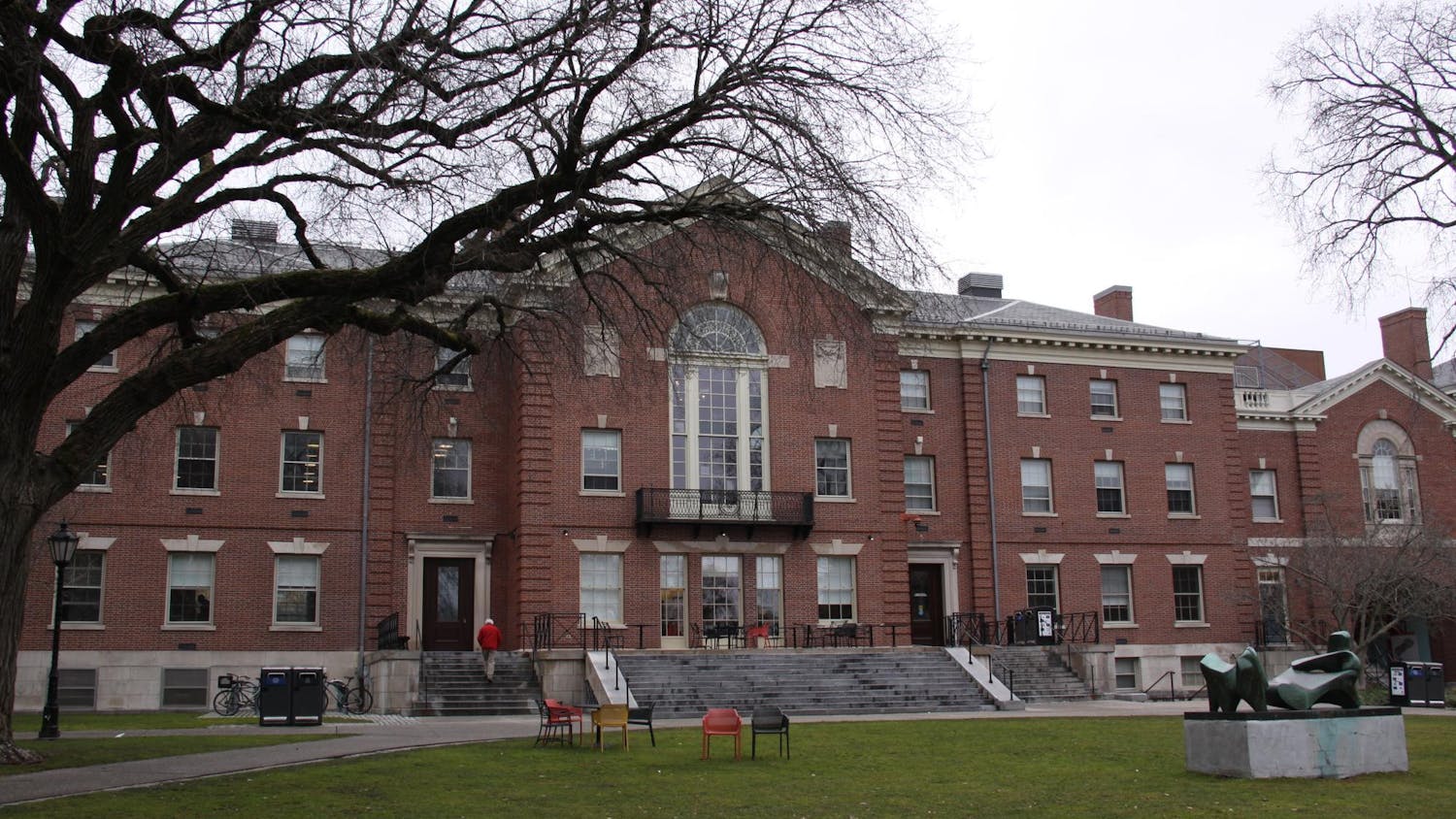“If one more person tells me that ‘all gender is performance,’ I think I am going to strangle them,” proclaimed Julia Serano, author and spoken word performer, in the opening of her spoken word piece “Performance Piece.”
The piece was one of two Serano performed after her lecture about the intersections of different types of marginalization, including racism, sexism and transphobia. The event, held in Metcalf Auditorium Tuesday night, was hosted by the Pride Series and Queer Alliance as part of Women’s History Month. It concluded with a question-and-answer session.
In her talk, entitled “The Intersection of Feminism, Queer and Trans Politics,” Serano discussed the problems with characterizing marginalization as “unilateral” and argued that the issue is much more complex than “oppressors, oppressed, end of story.” As an example, Serano said sexism does not always entail men oppressing women. Leaders of “second-wave” feminism in the 1960s and ’70s, such as Betty Friedan, fought against traditional sexism but excluded lesbians from their movement, she said.
In fact, Serano said, different forms of “-isms” can overlap, exacerbating each other’s effects. It is not the case that “racism happens over here, sexism happens over here” — these forms of oppression cannot be confined to particular areas of a person’s life, Serano said.
Serano spoke of her own experiences with trans-misogyny, a form of sexism specifically targeting people on the “trans female/feminine spectrum,” as she wrote in one of her lecture slides.
Sexism and stereotypes target transgender men and women in different ways, she said. While transgender men are often assumed to have transitioned in order to benefit from “male privilege,” transgender women are often perceived to have transitioned for sexual reasons, leading to their hypersexualization in media portrayals, she added.
Serano earned snaps from the audience when her presentation moved to what she called “the obligatory explaining ‘cis’ slide.” Before the term ‘cisgender’ was coined, there was no specific term to describe someone who was not transgender, Serano said, so people might have said a woman was a “normal” or “biological woman” in contrast to a “trans woman.”
“I am not inorganic or not biological in any form,” Serano said, prompting laughter from the audience. She described how naming people with a label such as “bisexual” or “transgender” marks them as abnormal, especially when there is no commonly used label for people outside those groups.
In her discussion of her new book, Serano admitted that hearing about “newly articulated forms of sexism” keeps her awake at night. The oppression of bisexuality, transsexuality and asexuality has only recently been captured in the specific terms of “monosexism,” “cissexism” and “asexophobia,” she said. Since these terms are fairly new, Serano said she is concerned there could be other groups whose marginalization has not yet been recognized.
In addition to oppression present throughout society, there are forms of marginalization that are specific to queer communities and subcultures, Serano said. Even in gay or lesbian communities, there is a sense of masculine-centrism whereby feminine identities remain suspect. Serano also described “subversivism” in queer communities, where people with more conservative gender or sexual identities might be marginalized due to the perception that they are conforming to a mainstream, oppressive system.
Kyle Albert ’15, an organizer for the event, said he is a fan of Serano’s work and that her talk fits into Women’s History Month’s theme of intersecting movements.
ADVERTISEMENT




